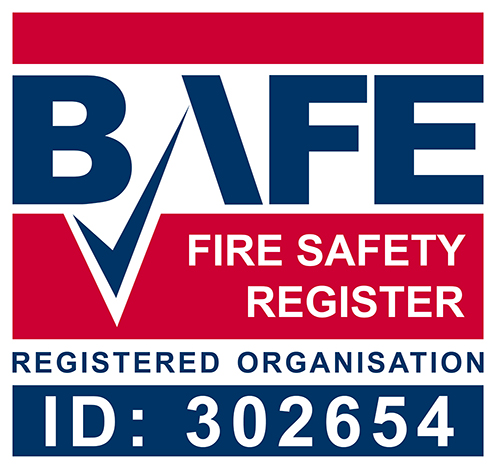The piercing sound of a beeping fire alarm is a vital safeguard, designed to alert us to potential dangers and ensure our safety from the devastating consequences of fires. However, when these alarms sound off without an apparent reason, it can be both confusing and unsettling. Looking into the reasons behind these false alarms and understanding how to address them is essential for every business owner.
This article by Clear Sound Fire & Security brings over 40 years of expertise in the Fire and Security industry. As NSI NACOSS Gold Approved installers of CCTV, Access Control, Intruder Alarm systems, and Fire Alarms, our insights offer years of deep knowledge and practical experience – ensuring you’re in capable hands as we go through this topic.
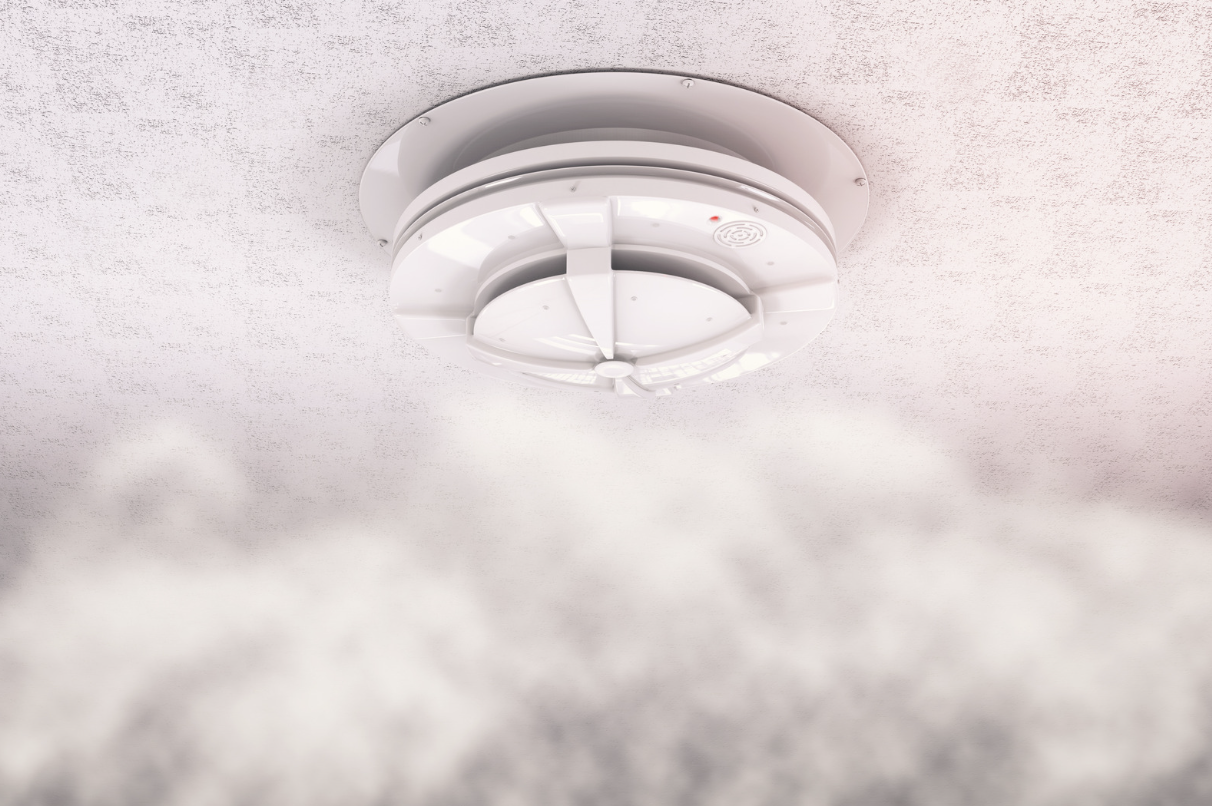
Understanding Smoke Detectors
A smoke detector is an essential component in the fire protection strategy of any business. These devices are expertly designed to detect smoke – often the precursor to fire – and sound a timely alarm to alert the occupants of your building.
How Smoke Detectors Work
There are principally two main types of passive smoke detectors used in commercial premises:
Photoelectric (optical): These detectors have a light sensor that, when obscured by smoke, scatters light and triggers the alarm.
Ionisation: These detectors contain a minuscule amount of radioactive material that ionises air, creating a current. When smoke disrupts this current, the alarm is activated.
For improved safety, companies are recommended to install dual sensor smoke alarms that combine ionisation and photoelectric technology. This ensures comprehensive protection against different types of fires. Modern advancements have seen smoke detectors evolve to include wireless capabilities and extended battery life. To explain, ‘ionisation’ in smoke detectors refers to the interruption of a current by smoke, whilst ‘photoelectric’ detection involves materials that emit electrons when exposed to light.
Are you looking for a reliable fire alarm for your workplace?
Speak with our experts here at Clear Sound Fire & Security, who will offer you the most suitable fire alarm solutions for your business.
Common Reasons for False Alarms
Experiencing a false alarm can be both alarming and annoying. While fire alarm systems are designed to alert us to genuine threats, there are instances where they might be triggered without an actual fire. Understanding the common reasons behind these false alarms is essential to prevent unnecessary panic and to ensure the reliability of our safety systems. In this section, we’ll look into the various factors that can lead to a false alarm, offering insights to help you mitigate such occurrences in your workplace.
1. Faulty Product
One of the primary reasons a fire alarm keeps going off unexpectedly can be due to manufacturing issues. These defects can disrupt the electrical current within the device, causing it to malfunction. It’s essential to understand how smoke alarms work to appreciate the intricacies of their design and the potential pitfalls of substandard manufacturing. Investing in reputable brands can mitigate such risks. While it’s tempting to buy cheaper alternatives, it’s worth noting that not all smoke alarms, especially smart smoke detectors, are created equal.
Note: When considering a smart smoke detector, look for features like consistent performance, ease of connectivity, and robust build quality. Remember, the safety of your business and colleagues hinges on the reliability of these devices, so it makes sense to prioritise quality over cost.
2. Proximity Issues
In the context of smoke detectors, ‘proximity’ refers to how close the device is placed to potential sources of non-hazardous smoke or steam. When a smoke detector is too near areas like kitchens or washrooms, everyday activities can produce smoke particles or steam that the device might mistakenly interpret as a fire, leading to smoke detector false alarms. It’s essential to position detectors thoughtfully to avoid such issues.
Too Close to the Kitchen
Fire alarms placed near commercial kitchens are frequently triggered by cooking emissions. It’s crucial to position smoke detectors at a suitable distance of at least 10 feet (3 metres) to prevent false alarms resulting from culinary activities.
Too Close to the Washroom
Placing smoke detectors near a steamy shower-room can lead to frequent false alarms. The steam, especially in a confined space, can easily be mistaken by the detector as smoke. This is because the moisture particles in the steam can scatter the light in the detector’s sensing chamber, similar to how smoke particles would. It’s essential to consider this when positioning alarms to avoid the nuisance of unwarranted alerts.
3. Environmental Factors
Environmental factors play a significant role in triggering false alarms. Smouldering fires, often undetected by the naked eye, can release particles that interfere with smoke detectors, even if they aren’t immediate fire hazards. High humidity, prevalent in areas like kitchens, can also be mistaken by some detectors as smoke, leading to unwarranted alarms. Additionally, the presence of a light beam, especially when it reflects off particles in the air, can disrupt the sensors of certain smoke detectors, causing them to sound off erroneously.
4. Chemical Compounds, Insects, and Dust
One of the lesser-known culprits behind false alarms is the intrusion of small bugs. These tiny creatures can crawl inside smoke detectors, causing unexpected disruptions. Additionally, the use of pest control sprays and other harsh chemicals in the vicinity of the detectors can lead to false alarm triggers. Dust accumulation, combined with these factors, can further exacerbate the sensitivity of the alarms. It’s essential to be mindful of where and how we use such products and to regularly check and clean our detectors to prevent such incidents.
5.Dead Fire Alarm Battery
One of the primary culprits behind false alarms is a dying battery in the smoke detector. As the battery’s power wanes, it may not provide the necessary voltage for the detector to function optimally, leading to intermittent signals that can be mistaken for actual smoke detection.
Regular battery checks and timely replacements are essential to ensure that the device can accurately detect smoke and alert occupants. With advancements in technology, the latest recommended batteries for smoke detectors are lithium-ion batteries, known for their long lifespan and consistent power output, ensuring that the device remains vigilant in its primary function to detect smoke.
6. Accidental or Intentional Damage to ‘Break Glass’ Point
False alarms can frequently arise from damage to ‘break glass’ points in fire alarm systems. These are manual call points that activate the alarm when the glass is broken. Accidental damage during routine activities or intentional vandalism can cause the system to mistakenly signal a fire. Even slight tampering or environmental changes, such as severe temperatures or humidity, may crack the glass. To prevent a false alarm, it’s important to regularly check these points for damage, and consider installing protective covers.
7. Improper Testing and Maintenance
A frequent source of false alarms in fire detection systems stems from inadequate testing and maintenance routines. Manufacturers generally recommend monthly testing to ensure the alarm functions correctly, which involves a simple press of the ‘test’ button. However, improper testing or neglecting this routine check can lead to sensors becoming overly sensitive or failing to respond appropriately.
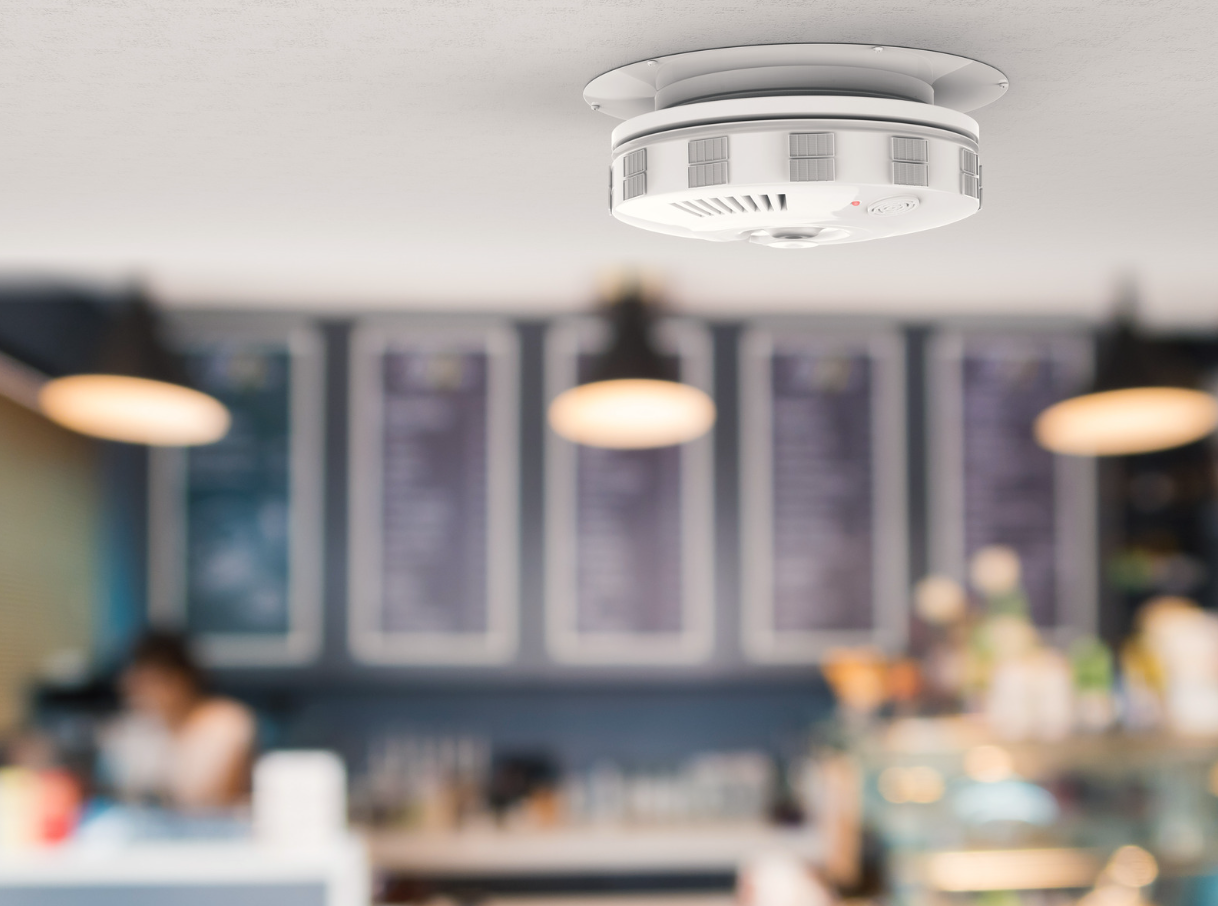
Addressing False Alarms
One of the most common grievances we face is the constant ‘smoke detector beeping’ without an evident cause. This not only disrupts daily life but can also lead to complacency, potentially disrupting the alarm’s primary safety role. Addressing and preventing false alarms is essential. Factors such as a smoke detector’s sensitivity can play a significant role in these unwarranted alerts. By understanding and adjusting this sensitivity, and by taking other preventative measures, one can significantly reduce the chances of their smoke detector sounding off without reason.
Regular Maintenance
Ensuring the best functioning of your fire alarms goes beyond the initial installation. Regular maintenance, encompassing routine checks and thorough cleaning, plays a major role in preserving the integrity of these life-saving devices. Over time, detectors can become outdated or less responsive, making it essential to know when and how to replace them.
It’s not just fire alarms that require attention – carbon monoxide detectors, equally crucial in safeguarding business premises, also benefit immensely from regular upkeep.
By prioritising maintenance, you both improve safety and ensure peace of mind, knowing that your devices are in top condition to protect you and your loved ones.
It’s also recommended that basic fire alarm tests should be conducted weekly on commercial premises to ensure no major failures in your fire alarm system.
Related: How Often Should Fire Alarms Be Tested?
Seeking Professional Help
Ensuring the functioning of your fire alarms goes beyond the occasional battery change – it requires routine checks and thorough cleaning. While some maintenance tasks can be managed independently, there are moments when the expertise of a professional is indispensable.
If you’re experiencing recurrent false alarms or notice any irregularities in your system, it’s time to call in experts for a comprehensive assessment and necessary repairs. Regular professional inspections not only bolster your workplace security but also play a big role in preventing false alarms that could inadvertently strain emergency services. Investing in these inspections can provide peace of mind, knowing that your alarms are primed to function precisely when you need them most.
How often should commercial fire alarms be replaced?
Timely replacement of fire alarms are essential for workplace safety and compliance. It’s generally recommended that commercial fire alarms be replaced every 10 years. This advice reflects the typical lifespan of smoke alarm devices and ensures that they remain effective and reliable. Over time, components in fire alarms can degrade or become less sensitive, which may affect their ability to detect smoke or fire promptly. Therefore, following this 10-year replacement cycle is recommended for maintaining a high standard of fire safety in commercial environments.
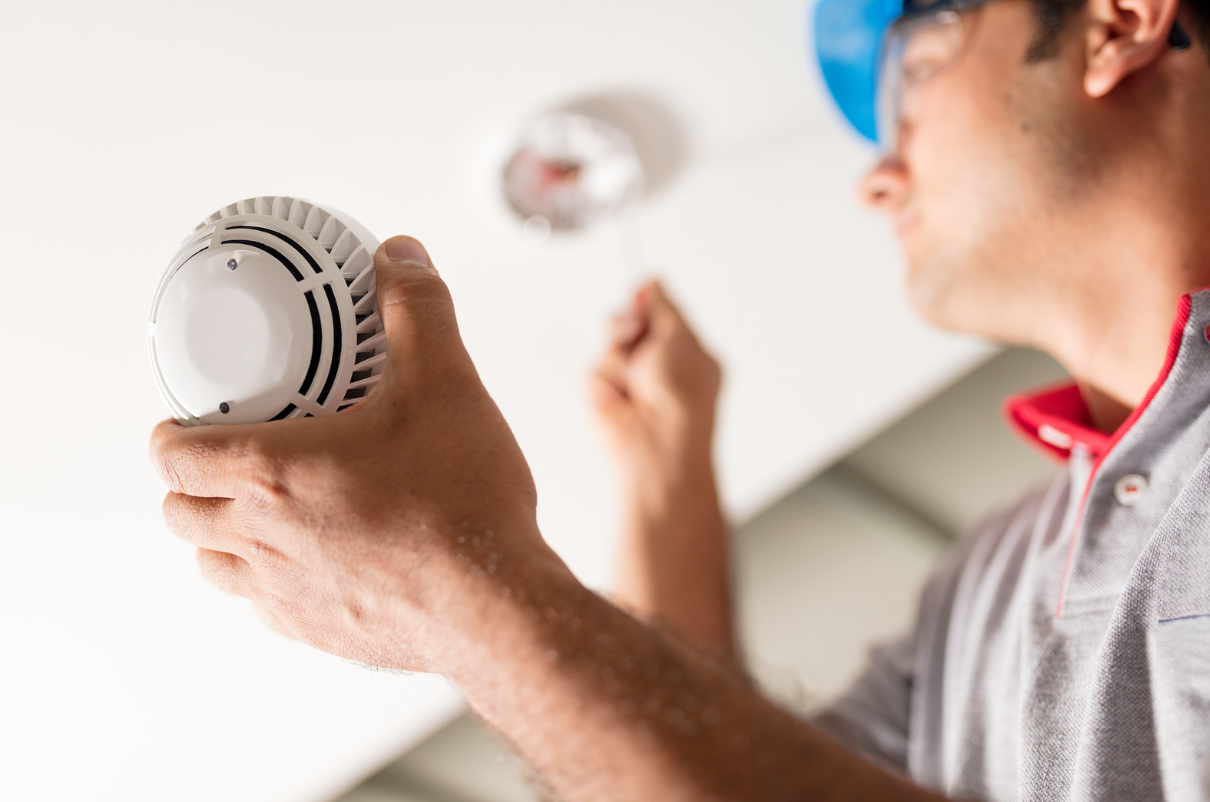
Conclusion
In our exploration of the reasons behind the unexpected sounding of fire alarms, we’ve touched upon various causes, from battery issues to environmental factors, and looked into effective solutions to address them. It’s clear that while fire alarms play an indispensable role in our safety, achieving a balance between this safety and our peace of mind is equally important.
Regular maintenance and heightened awareness can significantly reduce the chances of false alarms, ensuring that these devices function as intended.
Drawing from Clear Sound Fire & Security‘s 40+ years’ experience, we hope this guide has been both informative and reassuring.
To learn more how Clear Sound can benefit your fire security, contact us today!
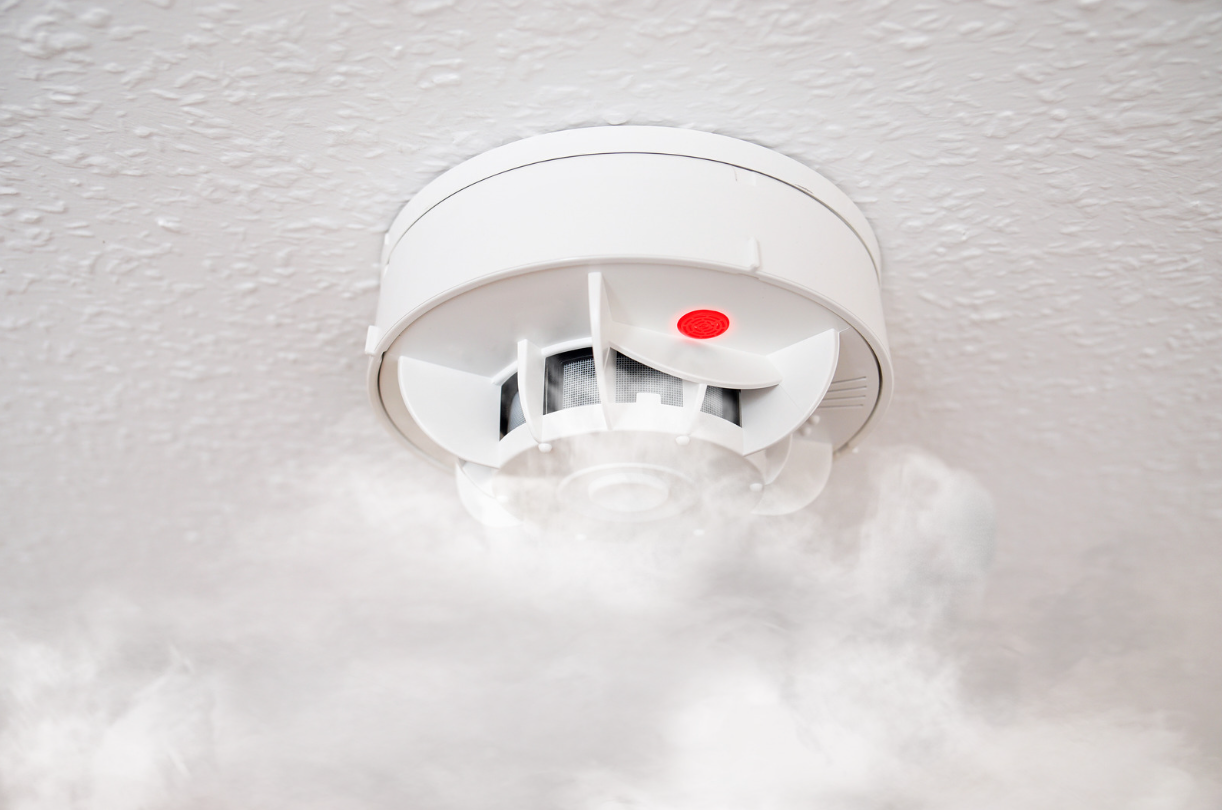
FAQs
We’ve summarised some of the most frequently asked questions and answers regarding why fire alarms keep going off, which we hope will answer any further queries:
What triggers fire alarm to go off?
Fire alarms can be triggered by various factors, including actual smoke from fires, cooking fumes, steam from showers, dust accumulation, insects, and even a low or dead battery.
Why do my smoke alarms keep going off even with new batteries?
Even with new batteries, smoke alarms can be triggered by factors other than smoke. Dust, insects, and environmental factors like steam or high humidity can cause the alarm to sound. It’s essential to ensure the device is clean and placed in an optimal location.
How can I reset a smoke alarm that won’t stop sounding?
If your smoke alarm doesn’t stop sounding, first try the reset button on the device. If that doesn’t work, flipping the circuit breaker off and then back on might stop the noise. Regular maintenance and cleaning can also help prevent such issues.
Does a commercial building have to have a fire alarm?
According to the UK’s current fire alarm guidelines, all business premises must have ‘an appropriate fire detection system’ in place, in order to quickly alert occupants and detect a fire if one ignites. Learn more here.


